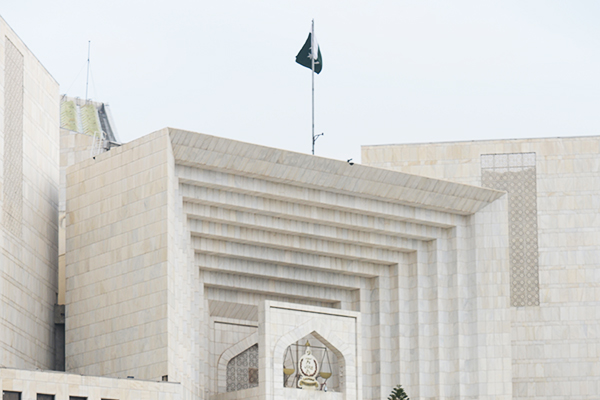
Farooq Naeem—AFP
Five-judge panel says appellants have not proven the controversial courts violated any constitutional rights.
Pakistan’s Supreme Court on Monday upheld the verdicts and death sentences passed on 16 civilians who were tried on terrorism charges by the country’s military courts, which have been sharply criticized by rights groups.
The appellants had criticized the courts for a lack of transparency and due process. Families complained that their relatives would go missing. Only later would they learn—often through the media—that their sons had been tried and convicted on terrorism charges and would face the gallows.
But a five-member Supreme Court bench headed by Chief Justice Anwar Zaheer Jamali said the appellants had not proved that the military courts violated any constitutional rights or failed to follow procedure. The courts were established under “extraordinary circumstances,” their ruling said, to deal with exactly the offences with which the accused were charged.
Pakistan reinstated the death penalty and established military courts after suffering its deadliest-ever extremist attack, when gunmen stormed a school in the northwest in 2014 and killed more than 150 people—mostly children.
The 11 military courts have passed judgment on 128 people and found the defendants guilty in 104 cases, according to a tally by the International Commmision of Jurists (ICJ). Only four have avoided the death penalty and been sentenced to life in prison instead.
Rights activists have called for greater transparency, saying the courts fail to meet even the murky standards of military tribunals around the world.
Reema Omer, a legal adviser for the ICJ, said the unusually high number of detainees said to have confessed—98 out of 104—raised the possibility of coercion and torture. “It’s almost always assumed that people don’t confess to their crimes. That raises all sorts of questions,” she said. “In one case we looked at, a convict said he was made to put his thumbprint on a document he did not know the contents of.”
